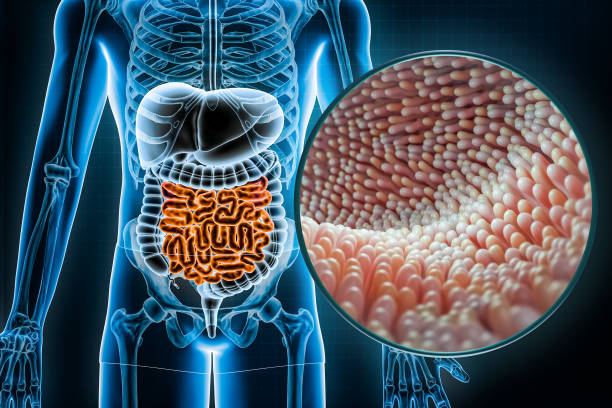Switching to a healthier diet can have numerous benefits, from boosting your energy levels to improving your overall health. However, if you’ve recently made the shift to eating more fruits, vegetables, and whole grains and are now facing an uncomfortable side effect like diarrhea, you’re not alone. Many people experience digestive issues when they make sudden changes to their eating habits. If you’ve been wondering, “I started eating healthy and now I have diarrhea, why is this happening?” here’s everything you need to know.
Understanding Why a Healthy Diet May Trigger Diarrhea
When you start eating healthy, your body can go through an adjustment period, especially if you’re introducing a significant amount of fiber, whole grains, and fresh vegetables into your diet. Your digestive system needs time to adapt to the increase in nutrients, and this adjustment can sometimes result in diarrhea. So, why exactly does this happen?
The Role of Fiber
One of the main culprits behind digestive upset when you start eating healthy is fiber. Fiber-rich foods like vegetables, whole grains, and legumes are fantastic for your health, but if your body isn’t used to them, it may take time to process these foods. Fiber helps with digestion by adding bulk to your stool, but if you suddenly increase your intake, it can cause your bowel movements to become more frequent or even runny.
Changes to Gut Microbiome
Your gut microbiome, the collection of bacteria and microbes that help digest food, is another factor. When you switch to a healthier diet, your gut bacteria need time to adjust to the new foods you’re eating. Some people may experience bloating, gas, and diarrhea as a result of this shift. This is particularly true if you’re eating foods that are unfamiliar to your digestive system, such as fermented foods or large amounts of fiber.

Increased Water Intake
When people start eating healthier, they often increase their water intake to stay hydrated. While this is generally a good thing, it can lead to more frequent trips to the bathroom. Increased water consumption can soften stool and, in some cases, lead to diarrhea, especially if you are also eating more fiber-rich foods that require additional water to aid digestion.
How Long Will This Last?
If you’ve just started eating healthy and now have diarrhea, you might be wondering how long it will last. For most people, this digestive upset is temporary and should subside within a few days to a week as your body adjusts to the new diet. However, if the diarrhea persists or worsens, it may be a sign of an underlying issue, such as a food intolerance or sensitivity.
Gradual Diet Transition
One way to prevent prolonged diarrhea when switching to a healthier diet is to make gradual changes. Instead of overhauling your entire diet in one go, try slowly increasing your fiber intake and incorporating healthy foods over time. This allows your digestive system to adapt without overwhelming it.
Keep Track of Your Symptoms
If you continue to experience diarrhea after starting a healthy diet, it may be helpful to track your symptoms. This will allow you to identify any specific foods or food groups that are triggering your digestive issues. Common offenders include dairy, gluten, and certain fruits and vegetables. Identifying these triggers can help you make adjustments to your diet and alleviate your symptoms.
What to Do If You Have Diarrhea After Eating Healthy
If you’re dealing with diarrhea after eating healthy foods, there are a few steps you can take to ease your symptoms:
- Stay Hydrated: Diarrhea can lead to dehydration, so make sure you’re drinking plenty of water throughout the day. Coconut water or electrolyte drinks can also help replenish lost nutrients.
- Eat Simple, Easy-to-Digest Foods: If you’re experiencing diarrhea, it’s a good idea to stick to bland, easily digestible foods like bananas, rice, applesauce, and toast. Avoid spicy, fatty, or heavy meals until your symptoms improve.
- Consider Probiotics: Probiotics can help restore balance to your gut microbiome and may alleviate digestive upset. Look for probiotic-rich foods like yogurt, kefir, or fermented vegetables.
- Consult a Doctor: If the diarrhea doesn’t improve or if you experience additional symptoms such as stomach pain or blood in your stool, it’s important to consult a healthcare professional. They can help identify whether there is an underlying condition, such as a food intolerance or gastrointestinal disorder.
The Impact of Gut Health on Digestion
The health of your gut plays a significant role in how your body processes and digests food. When you switch to a healthier diet, particularly one rich in fiber, fruits, and vegetables, it can have a noticeable effect on your gut health. Your gut microbiome, which is a complex ecosystem of bacteria, fungi, and other microorganisms, must adapt to the new types of food you’re eating. This process takes time, and during this period of adjustment, you may experience diarrhea as a result of changes in your gut flora. The good news is that over time, your gut microbiome will become more efficient at processing these healthier foods, and digestive issues like diarrhea will likely subside.
Food Intolerances and Sensitivities
When you start eating healthy and introduce new foods into your diet, it’s possible that you may unknowingly trigger food sensitivities or intolerances. For example, dairy products, gluten, or high amounts of fructose in fruits can lead to digestive distress for people with sensitivities to these foods. If you’ve recently added more dairy, for instance, and notice diarrhea shortly after meals, it could indicate lactose intolerance. Similarly, the increased consumption of fructose from fruits or high-sugar vegetables can trigger symptoms of IBS (Irritable Bowel Syndrome), including diarrhea. Keeping track of your food intake and noting when symptoms occur can help you pinpoint potential food triggers.
The Role of Hydration and Electrolyte Balance
In the early stages of switching to a healthier diet, you might notice that you’re consuming more water, which is essential for digesting fiber and other nutrients. However, if you increase your fluid intake too quickly or consume more water than your body is used to, it can lead to diarrhea. Additionally, when diarrhea occurs, your body loses essential electrolytes, such as sodium, potassium, and magnesium, which can worsen the situation. If you’re experiencing diarrhea due to your diet changes, it’s important to ensure you’re replenishing lost electrolytes. Drinking drinks with electrolytes or adding a pinch of salt to water can help restore your electrolyte balance and reduce symptoms of dehydration.
The Impact of Low-Processed Food Diets
If you’ve cut out processed foods from your diet as part of your transition to healthier eating, you may experience a temporary upset in digestion. Processed foods are often low in fiber and other nutrients, and the introduction of whole foods into your diet can overwhelm your digestive system, especially if you’re not used to eating so many fruits and vegetables. Your body has to break down these new, nutrient-dense foods, and it might not be equipped to process them as efficiently at first. If you’ve been eating a lot of processed carbs or foods with added sugars, the switch to a whole-food, plant-based diet can lead to diarrhea as your gut adjusts to this drastic change.
Potential Long-Term Benefits Despite the Initial Discomfort
While the initial phase of changing your diet may cause digestive discomfort, including diarrhea, it’s important to recognize the long-term benefits. Over time, your digestive system will adapt to the new healthy foods, and many of the issues you’re experiencing will likely disappear. The fiber in fruits, vegetables, and whole grains will promote better digestion, reduce the risk of constipation, and help maintain a healthy weight. A well-balanced diet also supports your gut health, which in turn improves your overall health, from boosting your immune system to reducing the risk of chronic diseases like heart disease and diabetes. Although you might be experiencing discomfort now, the long-term rewards of a healthy diet are well worth the adjustment period.
Conclusion
If you’ve recently made the decision to eat healthier and now have diarrhea, it’s likely due to the adjustment your digestive system is going through. As your body adapts to the increased fiber, changes in your gut microbiome, and new foods, it’s normal to experience temporary digestive upset. By gradually making changes to your diet, staying hydrated, and being mindful of potential food intolerances, you can help ease these symptoms and get back on track. Remember, if the diarrhea persists, it’s always a good idea to consult with a healthcare provider to rule out other causes.
So, if you’re asking, “I started eating healthy and now I have diarrhea,” don’t be discouraged. This phase is often just a temporary part of the transition to a healthier lifestyle. Stay patient, listen to your body, and soon, your digestive system will thank you for the positive changes you’ve made.
Also Read:
- Signs You Should See a Dermatologist for Your Skin
- The Role of Licensed Professionals in Med Spa Treatments
- A Beginner’s Guide to Visiting a Dermatologist for the First Time
- I Started Eating Healthy and Now I Have Diarrhea: What’s Going On?
- HealthGlo Mixed Nuts – A Nutrient-Packed Snack for Every Day!

Leave a Reply